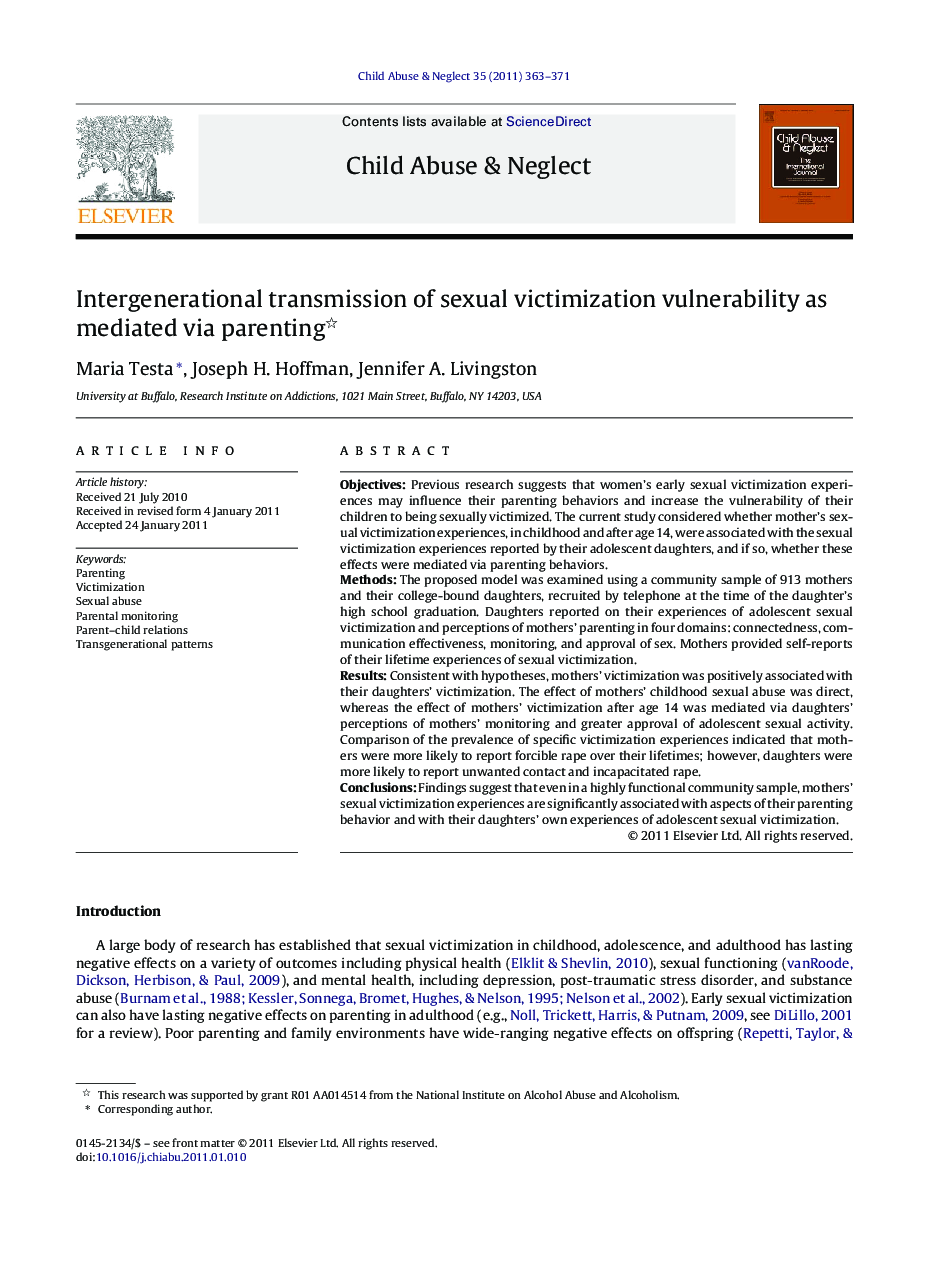| Article ID | Journal | Published Year | Pages | File Type |
|---|---|---|---|---|
| 345215 | Child Abuse & Neglect | 2011 | 9 Pages |
ObjectivesPrevious research suggests that women's early sexual victimization experiences may influence their parenting behaviors and increase the vulnerability of their children to being sexually victimized. The current study considered whether mother's sexual victimization experiences, in childhood and after age 14, were associated with the sexual victimization experiences reported by their adolescent daughters, and if so, whether these effects were mediated via parenting behaviors.MethodsThe proposed model was examined using a community sample of 913 mothers and their college-bound daughters, recruited by telephone at the time of the daughter's high school graduation. Daughters reported on their experiences of adolescent sexual victimization and perceptions of mothers’ parenting in four domains: connectedness, communication effectiveness, monitoring, and approval of sex. Mothers provided self-reports of their lifetime experiences of sexual victimization.ResultsConsistent with hypotheses, mothers’ victimization was positively associated with their daughters’ victimization. The effect of mothers’ childhood sexual abuse was direct, whereas the effect of mothers’ victimization after age 14 was mediated via daughters’ perceptions of mothers’ monitoring and greater approval of adolescent sexual activity. Comparison of the prevalence of specific victimization experiences indicated that mothers were more likely to report forcible rape over their lifetimes; however, daughters were more likely to report unwanted contact and incapacitated rape.ConclusionsFindings suggest that even in a highly functional community sample, mothers’ sexual victimization experiences are significantly associated with aspects of their parenting behavior and with their daughters’ own experiences of adolescent sexual victimization.
